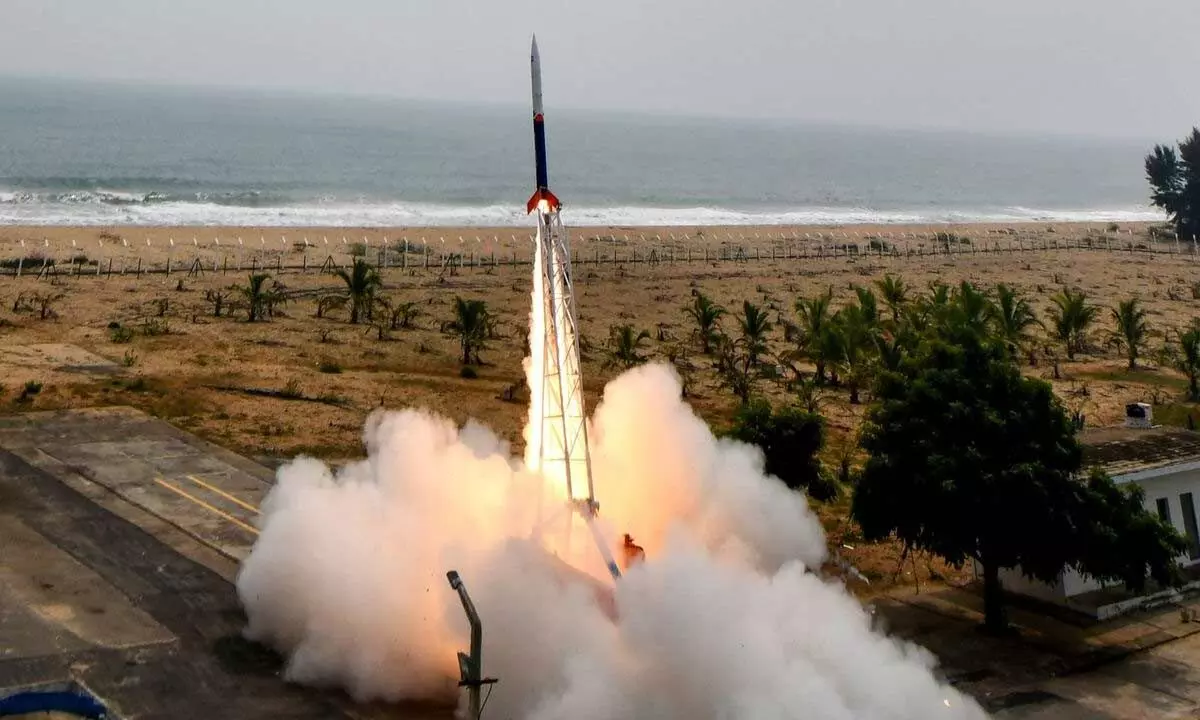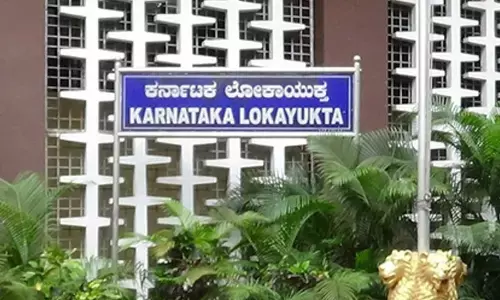Vikram launch opens up space for private players

India's first private rocket Vikram-S built by Skyroot Aerospace lifts off from a launch pad at the Satish Dhawan Space Centre in Sriharikota on Friday
Places 3 payloads in orbit, makes safe splash in sea
Sriharikota: India on Friday successfully launched its first privately made rocket, developed by a four-year-old startup, marking the entry of the private sector into the country's space activities which is currently dominated by the state-run behemoth ISRO. The rocket, Vikram-S launched three payloads in about 500 km low inclination orbit. It later safely splashed into the sea, as part of the mission.
Skyroot Aerospace-designed Vikram-S, named in a befitting tribute to the father of the country's space programme Vikram Sarabhai, tasted success in its maiden mission. In the process, the firm became the first privately held company in India after the space sector was opened for the private players by the Centre in 2020.
"I am happy to announce the successful completion of Mission Prarambh, The Beginning, by Skyroot aerospace," a smiling Pawan Goenka, Chairman of the country's space regulator, Indian National Space Promotion and Authorisation Centre (INSPACe), said from ISRO's Mission Control Center here.
The rocket achieved an altitude of 89.5 km and a range of 121.2 km, "exactly what was planned by Skyroot Aerospace," he said.
It "worked as planned" and Skyroot Aerospace has demonstrated various capability of sub-systems that will go into the orbital launch vehicle, he added. The vehicle integrated into the launcher soared after lifting off at the prefixed 11.30 am from the sounding rocket complex at the Indian Space Research
Organisation's Satish Dhawan Space Centre (SDSC), here, about 115 km from Chennai.
The Mission unveiled by ISRO Chairman S Somanath had three payloads with two belonging to domestic customers and one from a foreign client. The 6-metre tall rocket is one of the world's first few all-composite ones that has 3-D printed solid thrusters for spin stability of the launch vehicle.
"This is a new beginning for the Indian private sector entering aerospace and a historic moment for all of us," Goenka said. The three payloads that rode piggyback on the rocket are from Chennai-based start-up SpaceKidz, Andhra Pradesh-based N-SpaceTech and Armenian BazoomQ Space Research Lab.
Pawan Chandana, Skyroot Aerospace co-founder said all the required mission objectives were completed. "This Prarambh mission as the name signifies is the beginning of a new era in the Indian space ecosystem. Team Skyroot dedicates this successful mission to Dr Vikram Sarabhai, who boldly started the Indian space programme in the 1960s, and Prime Minister Narendra Modi for unlocking the space sector to private players," Chandana, also the Mission Director for Friday's launch, said.
'Fun-Sat', a 2.5 kg payload belonging to Chennai-based Spacekidz, has been developed by students from India, the US, Singapore, Seychelles and Indonesia.
The 545 kg Vikram launch vehicle consists of the Vikram II and Vikram III series. The technology architecture of the launch vehicle offers unique capabilities like multi-orbit insertion and interplanetary missions, while providing customised, dedicated and ride share options covering a wide spectrum of small satellite customer needs, Skyroot Aerospace said. The company added the rockets can be assembled and launched within 24 hours from any launch site.









